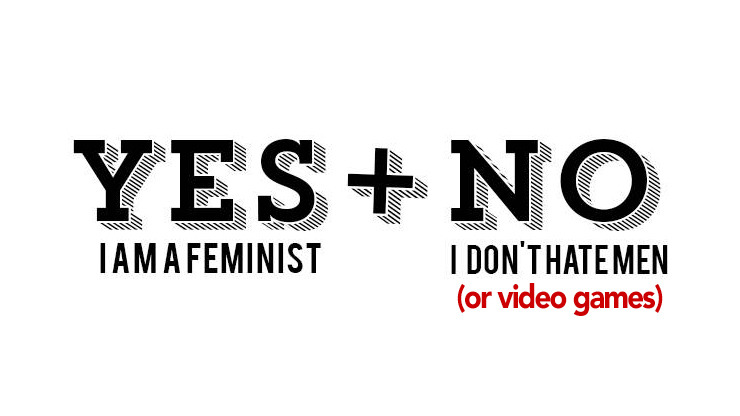A couple of weeks ago a friend of mine posted something on Facebook that I found insulting, and, at the time I read the post, I wanted to comment, but I didn’t. The person in question is an actual friend, not just a Facebook “friend.” As such, I don’t want to publicly embarrass him. But today, I wanted to write about my reaction to the post, and why I decided (rightly or wrongly) not to call him out on it. What he actually posted is somewhat irrelevant, but basically the post was insulting to female gamers. I was surprised to see it coming from this particular friend because he usually acknowledges the sexist issues surrounding the gaming community. Maybe he was having an off day or maybe he was trying to be (or thought he was being) funny. I don’t know. But, this post has been bothering me ever since. I think this particular post is sticking with me because it was one of the few times I let not wanting to be “that girl” stop me from saying something.
Usually, or at least often, I don’t mind being “that girl.” But, sometimes, especially in a situation where I don’t want to make waves or I feel like it’s not worth it to cause a scene, I refrain from being “that girl.” That’s, I think, what has really been bothering me about the post. I feel like I should have said something because it is worth it to me for people to understand how the stereotypes are still so entrenched in society and how harmful that can be. That even those who are trying to be allies can inadvertently let the inner sexist out. In this case, I have no doubt that the person in question would have immediately realized his mistake, but now I feel like it’s too late to go back and say, “weeks ago you posted something that is still bothering me.”
I’m more interested in exploring why sometimes even if I want to be “that girl,” I find that I cannot. Does it really matter if I upset people? Sometimes (often) it does matter to me. I don’t want to upset people or make them uncomfortable, but at the same time, there is often no other way to get the point across. I’ve found people really don’t like their core beliefs challenged and, when it happens, some people can get really defensive. I understand that, and I understand why it happens, and I would like to say that’s the reason I sometimes refrain from being “that girl.” But, I also think sometimes it’s the medium of the communication or exact situation (in this case Facebook itself) that leads me to hesitate.
I’m realizing I probably should go ahead and say something to this person, but I think it would be more effective to have the conversation in person rather on Facebook. Lately, I’ve been feeling more and more that Facebook creates a lot of unnecessary problems. If this situation had happened in person, I would have absolutely not hesitated to say something. But, responding to a post of Facebook invites possible miscommunication and misunderstandings. Replying to a post on Facebook also invites strangers to jump into the conversation, often with mean-spirited or insulting comments.
An in-person conversation will allow us to have a dialogue without all of the challenges of communicating via Facebook. When I discuss the problem with my friend in person, he will be sure that I’m not angry. But, on Facebook, I certainly can’t guarantee that I might inadvertently make the situation worse. Sometimes it just not worth it to address the situation at that exact moment. But, getting people, particularly people who are important to me, to understand how a joke or post may be marginalizing women is important to me, so I will address the situation in a more appropriate manner, at a more appropriate time.




